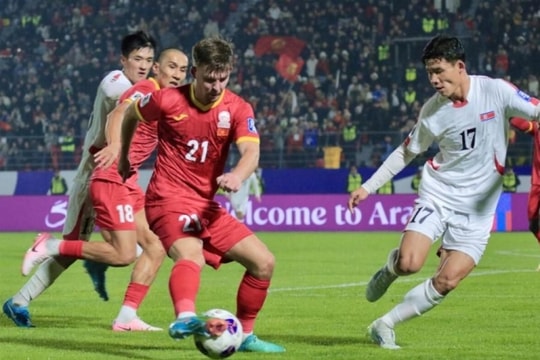Launching 2 missiles in the context of Covid-19, can it lift the 'veil of secrecy' of the epidemic in North Korea?
(Baonghean) - The storm called Covid-19 is making governments of many countries around the world frantically try to solve a series of challenges arising in the fields of politics, security, and economy, while foreign affairs are pushed to secondary. Only North Korea seems to want to prove the opposite when yesterday morning (March 29) it continued to test-fire short-range ballistic missiles. The two missiles launched carried a hidden message from leader Kim Jong-un that North Korea is still in good control of the situation and has not changed its strategic goals.
Who lifted the "Veil of Mystery"?
Japan, South Korea and the US all recorded that North Korea had test-fired two missiles yesterday morning. However, all three countries could not verify exactly what type of missile it was, only knowing that it was a short-range ballistic missile. With this missile test-launch, North Korea has had a total of 6 test-launches of objects into the Sea of Japan in less than 1 month since March 1. The March 1 launch was also North Korea's first ballistic missile test-launch since the start of the new year.
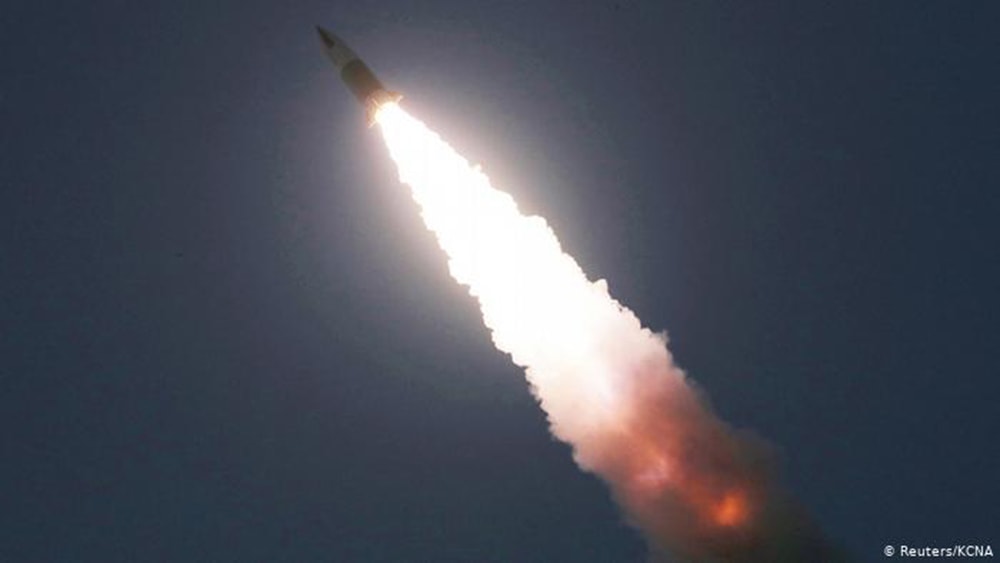 |
| North Korea test-fired a missile for the sixth time in a month. Photo: Reuters/KCNA |
The time when North Korea is rushing to conduct missile tests is also the time when more than 200 countries and territories around the world are having a headache in dealing with the almost "unstoppable" spread of the Covid-19 pandemic. Banning large gatherings, then locking down a city, a region, a state, then locking down the whole country..., all the drastic measures that countries like Italy, Spain, France, the US, India... are applying have not slowed down the number of new infections and deaths. At this time, the top goal of most governments around the world is how to control the epidemic, all schedules of foreign affairs activities are almost "frozen".
In that context, North Korea's increased frequency of missile tests is a strong affirmation that North Korea is not facing an epidemic outbreak like other countries, and that helps North Korea steadfastly pursue its strategic goals. Not only that, the missile test launch at a time when countries are focusing all their resources on fighting the epidemic helps North Korea avoid backlash from the international community. The evidence is that after the test yesterday morning, only South Korea and Japan were the two countries that immediately condemned North Korea's actions, considering this a dangerous step that threatens the security situation in the region.
But what is really happening in North Korea? It seems that no one can lift this “veil of mystery”. Apart from the rare data that North Korea itself announced about the quarantine of more than 10,000 people, no organization has accurate information about the current epidemic situation in North Korea. Therefore, despite concerns, the world is forced to view the Covid-19 epidemic in North Korea as what the country is showing, that is, there are no people infected with SARS-CoV-2, and disease control measures are still being tightened.
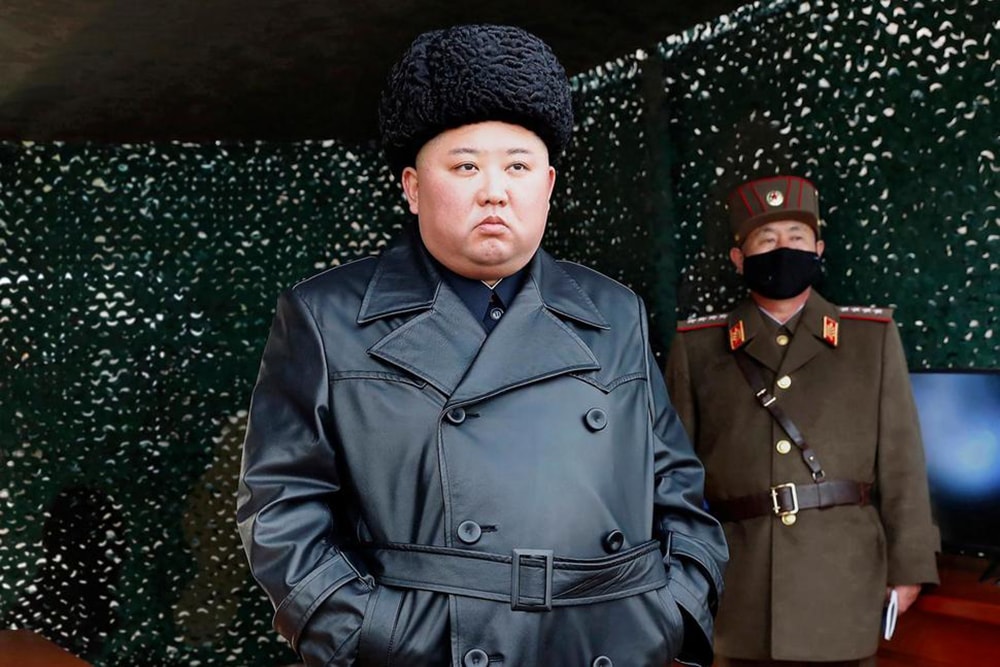 |
| North Korean leader Kim Jong-un watches a missile test launch. Photo: US News |
North Korean media reported that North Korea had closed its entire border, leader Kim Jong-un attended the groundbreaking ceremony for a general hospital in Pyongyang, and that a local official had been disciplined for holding parties that violated regulations on nationwide Covid-19 prevention and control measures. However, a very notable piece of information about North Korea's confidence in controlling the epidemic is that the Supreme People's Assembly session will still be held next April.
Behind the Missile Story - Covid
As the Covid-19 pandemic spreads around the world, many people believe that with a struggling economy and a deficient healthcare system, North Korea will be in a difficult situation if a Covid-19 outbreak occurs. However, the persistent conflict between North Korea and South Korea as well as with the United States is not affected by the Covid-19 pandemic, which means it is difficult to make changes in North Korea's security policy. The nuclear weapons and ballistic missile development programs are the result of decades of effort, risk and sacrifice. Therefore, many believe that North Korea will not trade its nuclear arsenal and missile development programs at any price, whether it is economic decline or the consequences of the pandemic. Not only that, when a country is at risk of being weakened by a pandemic, the ability to protect itself with nuclear capabilities becomes even more vital.
There have been concerns that the Covid-19 pandemic could create an opportunity for North Korea to take more aggressive action as the US and South Korea are distracted by internal crises. That means North Korea will continue to conduct more missile tests after yesterday's test, possibly even beyond the scope of short-range ballistic missile tests. But others say that, although the figures are not officially released, it is possible that North Korea is facing the same problem, so it should focus on recovering from the pandemic rather than launching a war.
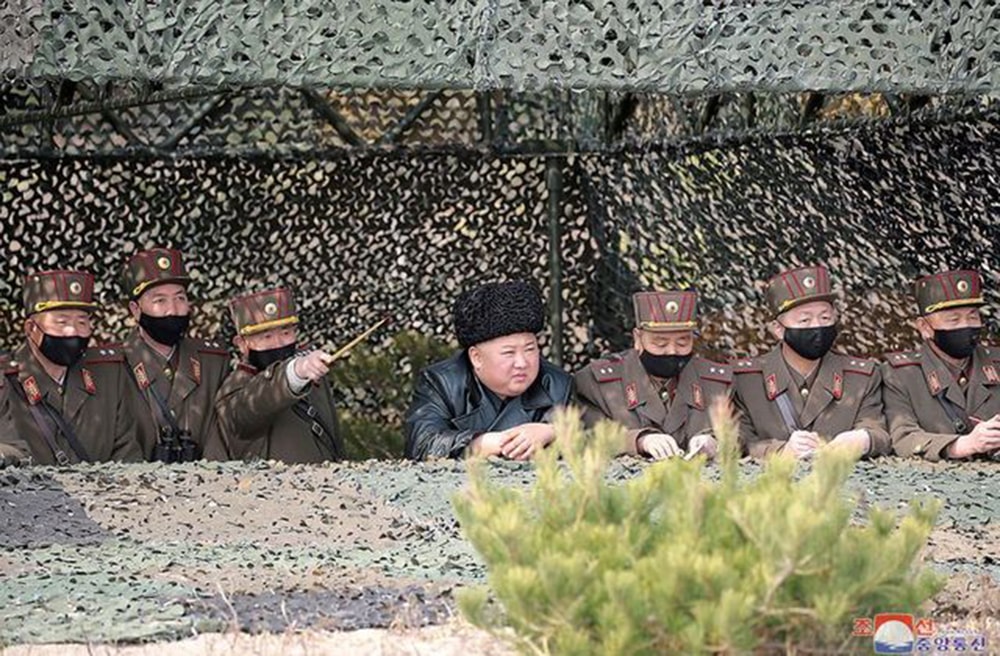 |
| North Korean officers all wore masks as they observed the missile test launch with leader Kim Jong-un. Photo: US News |
According to some reports, the border closure is causing severe disruption to the North Korean economy, with shortages of basic goods and skyrocketing prices. Leader Kim Jong-un himself has acknowledged weaknesses in the North Korean health care system and said that a Covid-19 outbreak in the country could have serious consequences. Therefore, although North Korea will not change its security policy, it may pursue a temporary tactic of reconciliation with South Korea. Some may doubt this view, citing the strong speech of leader Kim Jong-un's sister, Kim Jo-jong, after South Korea condemned North Korea's missile launch on March 2. But analysts say the speech was aimed primarily at positioning Kim Jo-jong's role in the North Korean government, not at assessing inter-Korean relations.
Kim Jo-jong’s criticism at that time was not aimed directly at South Korean President Moon Jae-in, but only condemned South Korea’s military exercises – a normal reaction of North Korea to its neighbor’s military moves. This assessment was proven when just one day later, South Korea announced that Kim Jong-un sent a letter to President Moon Jae-in, in which he affirmed the “unshakable friendship” between the two leaders.
If North Korea pursues a temporary reconciliation with South Korea at this point, it would be a win-win strategy. Moon Jae-in’s domestic approval ratings are low, and his party faces parliamentary elections in April. Improvements in relations with North Korea would be a key electoral plus. On the other hand, warmer relations with South Korea could open up opportunities for economic or humanitarian aid to North Korea, relieving pressure on its domestic economy. Like most countries, North Korea certainly understands the value of economic stability after the Covid-19 storm has passed.

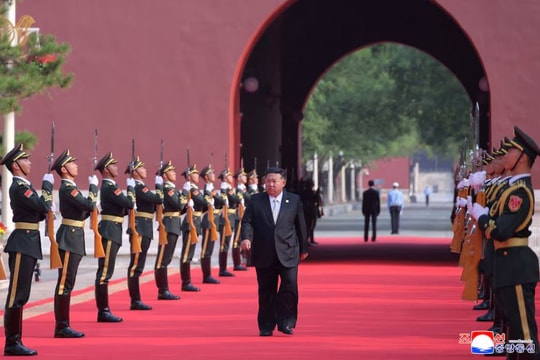
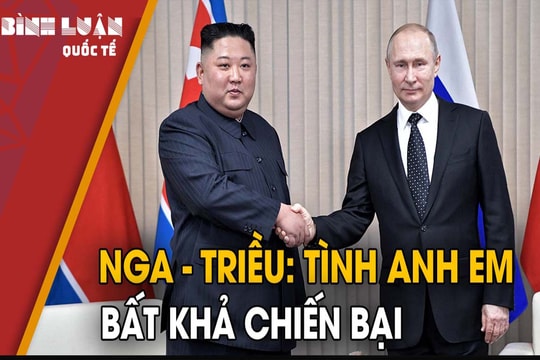
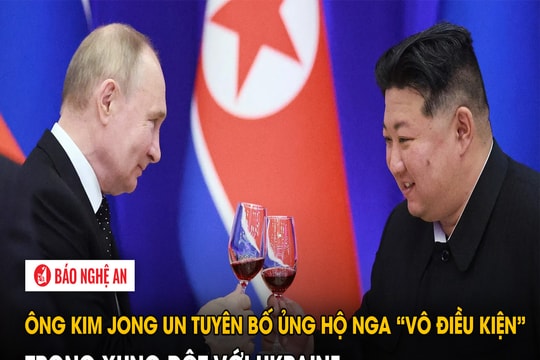
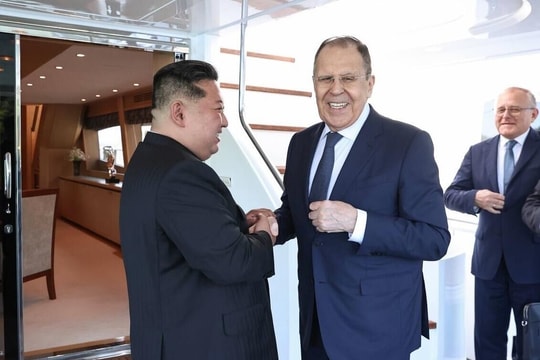
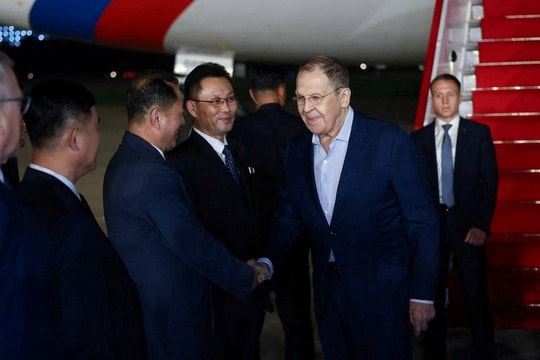
.jpg)
